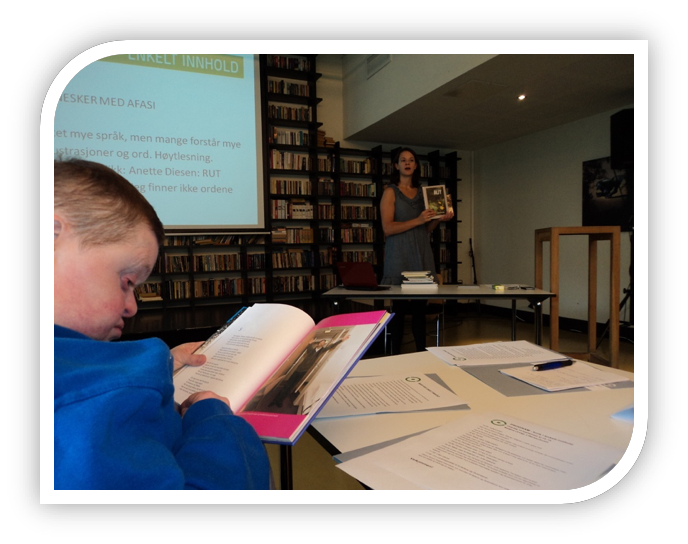Ageing
4. Health
4.7. Information, conversations and decision-making
Many older adults with ID never attended school. They have limited knowledge about the ageing process and their understanding of the mechanism of physical illness may be limited. Most of them do not understand their body functions and lack the ability to communicate bodily changes and sensations.
Terminology in biological and physiological explanations e.g. in treatments, may be problematic for people with ID (actually, for others too). Medical jargon and concepts are abstract and quite complex, and lack of communication skills easily lead to dependency.
In this video, you can hear people with ID in the self-advocacy group ‘My Life My Choice’ talk about their experience of ability related to health checks and health services (27):
HealthWatch from My Life My Choice on Vimeo.
When people get sick and need professional help there are many decisions that have to be made. Opportunities’ for self-determination depend on peoples’ knowledge and the information they receive to make decisions.
Sometimes ‘professional power’ is understood to be a form of oppression and "expectations are really the major methods of control in any kind of culture or community” (17). People with ID are often ‘placed’ in a receiver role. If the person refuses to ‘receive' the service, it is the person who has a problem! Those who protest are at risk of being characterised as ungrateful or labelled with a psycho-medical diagnosis. This issue often prompts questions like ‘who the owner of the problem is’, ‘what the interplay is’ and ‘what can be done by whom’.
Involvement in 'decision-making' in health care is important to improve quality of care and quality of life. This is a sign of respect, but also to ascertain insights that are not necessarily accessible for others. It is a fact that in most countries, adults with ID remain largely excluded from front-line health care decision-making (1, 14, 15).

Photo: Britt-Evy Westergård
Older adults with ID should be included in conversations on their life and care choices. It is important to use whatever approaches and communication methods are appropriate for the person, and recognise that this may not always be verbal.
The primary purpose of engaging the perspectives of adults with ID is linked to providing environments that optimise autonomy, respect the person’s wishes and provide for quality of life. The perspectives of the person must be considered whenever interventions and support are discussed. Practice recommendations may include (18):
- Valuing personal perspectives in decision-making
- Enabling peer-to-peer support
- Supporting choice
- Wider availability of materials for persons with ID that would promote understanding of their health issues
The European Disability Strategy 2010-2020 claims there are still major barriers to the accessibility of information for people with disabilities (9). It is important to simplify the language, use alternative symbols and media to convey important information. The information must be adapted to individual conditions, such as age, maturity, experience, cultural and linguistic background and provided in a considerate way. It is important that the person understands the content and meaning of the information they receive.
There are resources on the internet parents can use to talk about issues when their children grow older. One example of a webpage with electronic booklets (in English), is from Down's Syndrome Scotland: https://www.dsscotland.org.uk/resources/publications/for-parents-of-adults/. In Nordic languages, the following websites may be useful: https://www.aldringoghelse.no/utviklingshemning/tilrettelagt-tekst-lett-%C3%A5-lese/
ACTIVITIES:
- Find out what resources there are in your home-country about ageing in people with ID and health.
- Talk with your child/sibling/client about they know about their own health.
- Choose one topic from a leaflet, website or book they find interesting, read together and talk about it afterwards.